EuCheMS Brussels News Updates, December 2015

General European Highlights
Commission Unveils New Circular Economy Package
The European Commission has revealed the new Circular Economy Package, containing a wide range of legislative proposals and other policy lines that aim to promote an economy where the value of products and materials is maintained for as long as possible, waste and resource use are minimised, and resources are kept within the economy when a product has reached the end of its life, to be used again and again to create further value.
Actions under this package include: (i) Funding of over €650 million under Horizon 2020 and €5.5 billion under the structural funds; (ii) Actions to reduce food waste including a common measurement methodology, improved date marking, and tools to meet the global Sustainable Development Goal to halve food waste by 2030; (iii) Development of quality standards for secondary raw materials to increase the confidence of operators in the single market; (iv) Measures in the Ecodesign working plan for 2015-2017 to promote reparability, durability and recyclability of products, in addition to energy efficiency; (v) A revised Regulation on fertilisers, to facilitate the recognition of organic and waste-based fertilisers in the single market and support the role of bio-nutrients; (vi) A strategy on plastics in the circular economy, addressing issues of recyclability, biodegradability, the presence of hazardous substances in plastics, and the Sustainable Development Goals target for significantly reducing marine litter; and (vii) a series of actions on water reuse including a legislative proposal on minimum requirements for the reuse of wastewater.
You can check EuCheMS recent contribution to the circular economy debate here.
Source: http://europa.eu/
New EU Copyright Framework
The European Commission (EC) delivered earlier this month its vision of a new EU copyright framework. This "political preview" will be translated into legislative proposals and policy initiatives in the next six months, taking into account all inputs from several public consultations.
Overall, the Commission wants to make sure that Europeans can access a wide legal offer of content, while ensuring that authors and other rights holders are better protected and fairly remunerated. Key sectors such as education, culture, research and innovation should benefit from a more modern and European framework.
Source: http://europa.eu/
MEPs Warn about Toxic Phthalate DEHP
According to a non-binding resolution adopted by Parliament last month, the European Commission should not authorise the recycling of plastics that contain the banned softener diethylhexyl phthalate (DHEP), to make soft PVC items such as footwear and floor coverings, because it poses a reproductive toxicity threat to exposed workers.
DEHP is banned by the EU’s REACH regulation, but a draft decision from the Commission still to be approved by EU member states, proposes to authorise the recycling of old plastics containing it into new PVC products. Members of European Parliament (MEPs) are concerned the risks to workers' health, and point to the serious nature of the adverse effects that can be caused by DEHP. MEPs also express doubts about the socio-economic benefits arising from the use of the substance would outweigh its risks.
Source: http://www.europarl.europa.eu/
STOA Annual Lecture Discovers the World of Quantum Optics
The Annual Lecture represents the high point of the European Parliament Science and Technology Options Assessment (STOA) annual activities and gives an opportunity for Members of European Parliament (MEPs), officials, scientists and the wider public to listen to eminent scientists, often Nobel Prize laureates, speaking about cutting - edge scientific and technological topics high on the European Parliament’s political agenda. On the occasion of the International Year of Light 2015, for this year's Annual Lecture, STOA invited Professor Serge Haroche, winner of the Nobel Prize in Physics for 2012, as the keynote speaker on Quantum Optics. Quantum optics and photonics are a clear of example of how science revolutionises our lives, in our daily use of TVs, cameras in our mobile phones, computer screens, LED lighting, navigation systems and fibre-optic cables.
Source: http://epthinktank.eu/
291 Young Researchers Across Europe Receive €429 million in Grants
The European Research Council (ERC) has announced in the beginning of December the awarding of its Starting Grants to 291 early-career researchers. The funding, worth in total €429 million and up to €1.5 million per grant, will enable them to set up their own research teams and pursue ground-breaking ideas.
These grants will also enable the selected scientists to build their own research teams, engaging an estimated 1000 postdocs and PhD students as ERC team members.
Source: https://erc.europa.eu/
Innovative Analytical Techniques for Improved Antimicrobial Agents
The emergence of antimicrobial resistance is an issue which is increasingly causing serious health problems to EU citizens. In the search for a solution to this problem, antimicrobial peptides are being recognized as promising candidates in the fight against bacterial pathogens. Researchers from the Joint Research Centre, in collaboration with the National Physical Laboratory (UK), have recently developed an analytical technique to characterize the interaction between antimicrobial peptides and synthetic membranes. This is expected to help to shed light on structure–activity relationships of membrane-induced antimicrobial action.
Source: https://ec.europa.eu/jrc/
EUROANALYSIS XVIII handing over to EUROANALYSIS XIX
In September 2015 EuroAnalysis XVIII was organized in Bordeaux by the French Chemical Society (SCF), counting with about 700 analytical chemists from 56 countries.
EuroAnalysis has become one of the most important broad-spectrum analytical chemistry conferences, covering all aspects of analytical sciences. It is held every two years in different European countries and is organized under the auspices of the EuCheMS Division of Analytical Chemistry (DAC). Other than the invited lectures, this conference also counted with special sessions, such as on education and on how can researchers better collaborate with policy-makers.
Source: www.euchems.eu
Climate Agreement in Paris Relies on More Science
On 12 December in Paris´ COP21 (Conference of Parties) governments agreed a long-term goal of keeping the increase in global average temperature to well below 2°C, since this would significantly reduce risks and the impacts of climate change. The agreement calls for global emissions to peak as soon as possible, recognising that this will take longer for developing countries and to undertake rapid reductions thereafter in accordance with the best available science. Governments agreed to come together every five years to set more ambitious targets as required by science, in which chemistry plays a crucial role.
Source: http://europa.eu/
Science Will Play a Key Role in Realising Agenda 2030
According to the UNESCO Science Report: towards 2030, the North-South divide in research and innovation is getting smaller. The trends and developments in science, technology and innovation policy and governance between 2009 and mid-2015 described in this report provide essential baseline information on the concerns and priorities of countries that should orient the implementation and drive the assessment of the 2030 Agenda. The 2030 agenda was agreed in 2015 at the United Nations Summit for Sustainable Development and replaces the Millennium Development Goals adopted in 2000.
Source: http://en.unesco.org/
The Status of Soil Resources
According to the recent United Nations´ report The Status of the World´s Soil Resources the world's soils are rapidly deteriorating due to soil erosion, nutrient depletion, loss of soil organic carbon, soil sealing and other threats, but this trend can be reversed provided countries take the lead in promoting sustainable management practices and the use of appropriate technologies, namely through chemistry-supported innovations. This report publication coincided with the end of the UN International Year of Soils 2015.
As a major storehouse for carbon, soils also help regulate emissions of carbon dioxide and other greenhouse gases, thus fundamental for regulating climate.
Source: http://www.fao.org/
Funding Updates and Awards
Land and Soil Management Award
The prize rewards land use and soil management practices mitigating soil threats i.e. soil degradation, erosion, reduction of organic matter content, diffuse contamination, and compaction as well as the reduction of soil biodiversity, salinization, sealing, flooding and landslides. In doing so, the award sheds light on outstanding achievements, encouraging new concepts of land and soil protection and their implementation in land management, as well as enhancing awareness about the importance of land and soil functions.
Deadline: 31 December 2015
Source: http://www.europeanlandowners.org/
Volvo Environment Prize 2016
The Volvo Environment Prize Foundation invites universities, research institutes, scientists and engineers as well as other individuals and organisations to submit nominations for the Volvo Environment Prize. Priority is given to an individual or to a group of named individuals rather than to institutions.
Deadline: 10 January 2016
Website: http://www.environment-prize.com/
EuCheMS Award for Service
The EuCheMS Award for Service acknowledges outstanding commitment with regard to fostering chemistry and molecular sciences in Europe and the goals of EuCheMS.
Deadline: 31 December 2015
Website: http://www.euchems.eu/awards/
Presidency Events
Deadline: 21 January 2016
Website: http://ec.europa.eu/research/
Policy Support for Industry 2020 in the Circular Economy
Deadline: 21 January 2016
Website: http://ec.europa.eu/research/
France – Spain Call for Proposals for Joint R&D Project
Deadline: 29 January 2016
Website: http://www.eurekanetwork.org/
Cooperation with Western Balkans under Erasmus+: Youth in Action: Western Balkan Youth Window
Deadline: 2 February 2016
Website: https://wbc-rti.info/
Capacity Building in the field of youth - 2016 - Round 1
Deadline: 2 February 2016
Website: https://eacea.ec.europa.eu/erasmus-plus/
Erasmus Mundus Joint Master Degrees 2016
Deadline: 18 February 2016
Website: https://eacea.ec.europa.eu/erasmus-plus/
Consultations and Roadmaps
Public Consultation on a renewed Modernisation Agenda for Higher Education in the European Union
In a fast changing world, it is important that the EU's priorities and activities reflect the real needs of higher education in Europe. For this reason, the European Commission is currently reviewing the existing agenda to ensure what it does is as useful as possible.
Deadline: 29 February 2016
Website: http://ec.europa.eu/dgs/education_culture/
Public Consultation on the Evaluation and Modernisation of the Legal Framework for the Enforcement of Intellectual Property Rights
With this consultation the Commission seeks views from all interested parties, in particular rightholders, the judiciary and legal profession, intermediaries, public authorities, consumers and civil society, on the question if the legal enforcement framework is still fit for purpose.
The consultation aims to help assess the functioning of Directive 2004/48/EC on the enforcement of intellectual property rights (IPRED) in the online environment, with a view to identify the possible need for adapting such provisions and to propose corrective measures.
Deadline: 1 April 2016
Website: http://ec.europa.eu/growth/
Opinion on Potential Risks to Human Health and the Environment From the Use of Calcium Cyanamide as Fertiliser
The European Commission and its Scientific Committee on Health and Environmental Risks (SCHER) have published the Opinion on potential risks to human health and the environment from the use of calcium cyanamide as fertilizer. The SCHER concluded that harmful effects for humans and for the environment could not be excluded when calcium cyanamide is used at the current rates of application. The Opinion is now open for comments.
Deadline: 10 January 2016
Website: http://ec.europa.eu/health/
Roadmap: Second Intermediate Evaluation of the Functioning of the SANTE Non-food Scientific Committees (SCs)
The objective of this evaluation is to assess the functioning of the SANTE non-food Scientific Committees (SC). To this end it will assess the relevance, the effectiveness and efficiency of its procedures as well as the coherence with other scientific bodies within and outside the EU. The results will inform the Commission about existing shortcomings of the system in place, also in view of its scope and long term sustainability.
Website: http://ec.europa.eu/
Business Updates
European Unitary Patent
In November a major roadblock on the path to a European unitary patent was cleared when 26 EU countries reached an important agreement on the distribution of revenues.
Although the mechanism for the patent was agreed back in 2012, the fee structure and the distribution mechanism for revenues remained open to later agreement. The latest agreement fixes the distribution key for an initial period of operation: 50% of fees will be retained by the European Patent Office (EPO) while the remainder (minus an administrative charge) will be distributed among the participating countries.
The unitary patent provides a new way for inventors and innovators to protect their intellectual property in the EU. Today, patents are awarded by national bodies and give protection in one country. The unitary patent means that just a single application is needed for a patent grant, which can then be activated in 26 countries by a simple and speedy procedure.
In a recent interview, EPO´s president said that the “First EU ‘unitary’ patent will be delivered most probably by the end of 2016”.
Source: http://ec.europa.eu/growth/; http://www.vieuws.eu/
2015 European Small and Mid-cap Awards Winners
The 2015 European Small and Mid-cap Awards were hosted by the Federation of European Securities Exchange and European Issuers in cooperation with the European Commission to promote success stories of the most dynamic companies financed by European public capital markets.
Their aim is to highlight the best European SMEs who have gained access to capital markets via an Initial Public Offering and to encourage more companies to access public capital markets.
Source: http://ec.europa.eu/growth/
Upcoming EuCheMS Recognised Events
10European Winter School on Physical Organic Chemistry - e-WISPOC 2016
31 January - 5 February 2016
Bressanone, Italy
Website: www.chimica.unipd.it/wispoc/pubblica/
I Convegno del Grupo Interdivisionale di Chimica per le Energie Rinnovabili - ENERCHEM-1
Florence, Italy
18 - 20 February 2016
Website: http://www.enerchem-1.it/
13th Chemistry Conference for Young Scientists - ChemCYS 2016
Blankenberge, Belgium
16 – 18 March 2016
Website: http://www.chemcys.be/
Bruner Workshop 2016 - Fabrizio Bruner Memorial Workshop on Environmental LC-MS
Urbino, Italy
6 – 8 April 2016
Website: http://brunerworkshop2016.uniurb.it/
1st European Young Chemists Meeting
Guimarães, Portugal, 26 – 29 April,
http://5pychem.eventos.chemistry.pt
Forthcoming Events
The 2nd International Conference on Advance Materials Research and Application
Shenzhen, China
18 - 21 December 2015
Website: http://ec.europa.eu/research/
RRI shaping New Horizons: Responsible Research and Innovation in Europe and Across the World
Brussels, Belgium
14 – 15 January 2016
Website: http://europa.eu/newsroom/
 6th EuCheMS Chemistry Congress
6th EuCheMS Chemistry Congress
11 - 15 September 2016
Seville, Spain
Website: http://euchems-seville2016.eu/
 EuCheMS Newsletter
EuCheMS Newsletter
Read Latest Issue of EuCheMS Newsletter Here
> More EuCheMS News
> Subscribe to Brussels News Updates!
David Spichiger, SCS
16.12.2015
Newsletter SCNAT Dezember 2015
 |
||
|
|
NEWS
Tournee «Forschung live» erfolgreich beendetDas Programm rund um das 200 jährige Jubiläum der Akademie geht diese Tage in Graubünden zu Ende. Wir blicken auf eine gelungene Tournee mit zwölf Standorten in der Schweiz zurück. Die Einsichten in den Passantenzonen waren gut besucht und der direkte Kontakt mit den Forschenden vor Ort gab dem Auftritt eine persönliche Note. Einsicht Gestern: Holzpark Klybeck, Basel
|
|
|
|
AGENDA
15. Januar 2016, 8:30-17:00, UniS, Bern
SWIFCOB 16 «Macht Biodiversität gesund?» Die Biodiversität beeinflusst die Gesundheit von Tier und Mensch in vielfältiger Weise. Sie beeinflusst etwa das psychische Wohlergehen, das Immunsystem oder die Übertragung von Krankheiten. Könnten das Gesundheitswesen und der Naturschutz stärker voneinander profitieren? Die Tagung SWIFCOB 16 «Macht Biodiversität gesund?» informiert über neuste Forschungserkenntnisse und Initiativen und diskutiert mögliche Synergien zwischen der Erhaltung der Biodiversität und der Förderung der Gesundheit. Anmeldungen bis am 4. Januar 2016 24.-26. Januar 2016, Rigi-Kulm
Rigi-Workshop, where disciplines meet «Big answers from small packages: systems and synthetic biology of microbes» Der Rigi-Workshop 2016 wird sich im Grenzgebiet von Mikrobiologie, Systembiologie und Synthetischer Biologie bewegen. Mikroorganismen gehören zu den einfachsten bekannten biologischen Systemen und bieten eine vielfältige Plattform für verschiedenste Anwendungen; von der Entwicklung von Nanomaschinen über die Veränderung von Stoffwechselwegen bis zur Herstellung komplett synthetischer Genome. Doktorierende und Post-Docs, die an solchen Fragestellungen interessiert sind, haben hier die Möglichkeit, sich mit erfahrenen Wissenschaftlern und untereinander auszutauschen und zu vernetzten. Die Sprache des Workshops ist Englisch. Rigi Workshop 2016 15.-16. Februar 2016, Universität Lausanne LS2 Annual Meeting 2016 Interdisciplinary sciences Die Konferenz bietet eine breite Palette der Spitzenforschung der interdisziplinären Wissenschaft in den Bereichen der Naturwissenschaften (Molekular- und Zellbiologie, Physiologie, Proteomik, experimentelle Pharmakologie, Neurowissenschaften, Mikrobiologie, Pflanzenbiologie, chemische Biologie und vieles mehr). Detailliertes Programm 16 February 2016, Lausanne Research breakthroughs and social impact: young scientists debate synthetic biology Emerging technologies have the potential to offer new solutions for society's challenges but also raise concerns about safety and ethical implications. At this round-table, young scientists from different fields will discuss the possible impact of synthetic biology, a maturing scientific discipline aiming to modify, rebuild and design biological systems. This event is organized by the Forum for Genetic Research and LS2 and is part of the LS2 Annual Meeting. More information 8. April 2016, Bern Ethische und rechtliche Verantwortung in internationaler Forschung International tätige Forschende können mit schwierigen ethischen oder juristischen Fragen konfrontiert werden – etwa bei der Zusammenarbeit mit korrupten politischen Strukturen vor Ort, bei der Mitarbeit an aus zweifelhaften Ressourcen finanzierten Projekten oder bei der Zusammenarbeit mit Forschenden aus Ländern, die internationalen Sanktionen unterliegen. Mehr Informationen 17. April 2015 bis März 2016, Kulturama, Stiftung Museum des Menschen, Englischviertelstrasse 9, Zürich Körperbilder von Vesal bis zur virtuellen Realität Die interaktive Sonderausstellung bietet eine Reise ins Innere des menschlichen Körpers und zeigt die Entwicklung der Anatomie von der Renaissance bis heute. Objekte, anatomische Präparate, historische Werke sowie Abbildungen, die durch modernste bildgebende Verfahren erzeugt wurden, Videos und interaktive Stationen führen die Besucherinnen und Besucher durch verschiedene Epochen und wissenschaftliche Disziplinen. Zur Ausstellung im KULTURAMA 27. Mai 2016, Basel eco.naturkongress 2016: Welternährung und die Schweiz Der eco.naturkongress (ehemals NATUR Kongress) ist die schweizweit führende Netzwerkplattform für Nachhaltigkeit. Der Event wird jährlich von rund 700 EntscheidungsträgerInnen und Fachleuten aus Politik, Wirtschaft, Wissenschaft und Medien besucht. Mehr Informationen 7.–8. Juni 2016, Bern Anpassung an den Klimawandel in der Praxis Im Mittelpunkt der internationalen Tagung steht die Frage, wie nationale Strategien zur Anpassung an den Klimawandel vor Ort erfolgreich in die Praxis umgesetzt werden können. Regionen, Städte und Gemeinden stellen konkrete Beispiele aus verschiedenen Bereichen vor. Für den Austausch zwischen den Projekten und für die Vernetzung der Teilnehmerinnen und Teilnehmer werden vielfältige Möglichkeiten geboten. Die Tagung wird vom Bundesamt für Umwelt BAFU zusammen mit ProClim-, dem Forum für Klima und globalen Wandel der Akademie der Naturwissenschaften Schweiz (SCNAT) veranstaltet. Mehr Informationen 11.-15. Oktober 2016, Grassau, Deutschland AlpenWoche 2016: Alpen & Menschen. Gelebte Kultur! Die AlpenWoche ist eine internationale Veranstaltung zur nachhaltigen Entwicklung im Alpenraum. Sie findet alle vier Jahre statt und wird von führenden, alpenweit tätigen Organisationen gemeinsam ausgerichtet. Auf der AlpenWoche kommen die wichtigsten Stakeholder der Region zum Informations- und Meinungsaustausch in Vorträgen, Podiumsdiskussionen und Workshops zusammen. Mehr Informationen Kontakt und ImpressumBei Fragen und/oder Anregungen zögern Sie nicht, mit uns Kontakt aufzunehmen: Wenn Sie den SCNAT-Newsletter in Zukunft nicht mehr erhalten möchten, können Sie sich hier abmelden: www.scnat.ch/Newsletter
Akademie der Naturwissenschaften Schweiz (SCNAT) | Haus der Akademien | Laupenstrasse 7 | 3008 Bern
Pascal Blanc | Tel. 031 306 93 23 | www.scnat.ch
Bild: ETH-Bibliothek Zürich, Bildarchiv.
|
Call for Nominations: EuCheMS Award for Service 2015
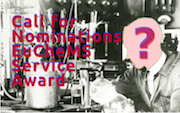 The EuCheMS Award for Service acknowledges outstanding commitment with regard to fostering chemistry and molecular sciences in Europe and the goals of EuCheMS. In addition to recognized service to EuCheMS, this may include activities in governmental, non-governmental or funding organizations, publicity-related activities, etc. Nominations must demonstrate achievements for improved competitiveness, visibility, coherence or structure of chemistry in Europe.
The EuCheMS Award for Service acknowledges outstanding commitment with regard to fostering chemistry and molecular sciences in Europe and the goals of EuCheMS. In addition to recognized service to EuCheMS, this may include activities in governmental, non-governmental or funding organizations, publicity-related activities, etc. Nominations must demonstrate achievements for improved competitiveness, visibility, coherence or structure of chemistry in Europe.
All EuCheMS member organisations, Divisions/Working Parties and individuals are invited to submit nominations for the Award. Self-nominations are not accepted.
Decisions on making the Award are taken by the EuCheMS Executive Board, normally annually.
It is normal practice that members of the Executive Board and Division Chairs are not considered for the Award until after their term of office has ceased.
Service as EuCheMS President or Treasurer or as Chair or other office holder of a EuCheMS Division is not itself sufficient to merit the Award.
The nomination must demonstrate service to EuCheMS and/or to European chemistry over and above the basic voluntary contribution that would normally be expected.
Unsuccessful nominations for the Award may be re-submitted once in the next three years from the first submission.
Please submit the nomination not later than 31 December 2015
David Spichiger, SCS
09.12.2015
SCS Award Winners 2016
It’s our pleasure to announce the winners of the 2016 SCS awards. We would like to sincerely congratulate all prizewinners and are looking forward to the ceremonies that will take place at one of your events during the next year.
Paracelsus Prize 2016
CHF 20,000 and medal in gold
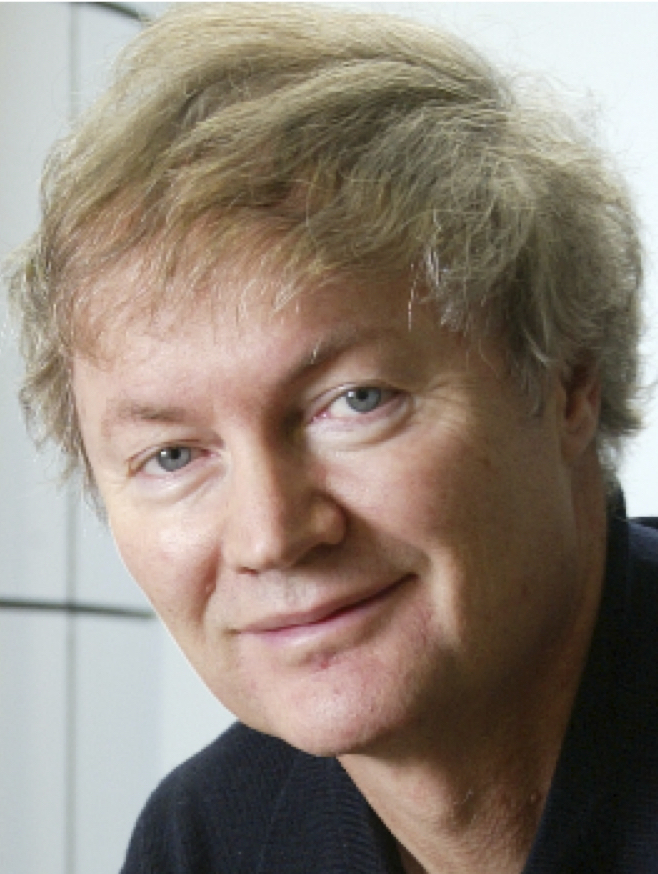 |
The SCS awards Prof. Michael Graetzel, EPF Lausanne, for his invention and development of the dye-sensitized solar cell. The prize if given on the occasion of the SCS Fall Meeting in Zürich on September 15, 2016. |
Professor at the Ecole Polytechnique de Lausanne, Michael Graetzel directs there the Laboratory of Photonics and Interfaces. He pioneered the use of mesoscopic materials in energy conversion systems, in particular photovoltaic cells, lithium ion batteries and photo-electrochemical devices for the splitting of water into hydrogen and oxygen by sunlight. He discovered a new type of solar cell based on dye sensitized nanocrystalline oxide films (Text from http://lpi.epfl.ch/graetzel).
Werner Prize 2016
CHF 10,000 and medal in bronze
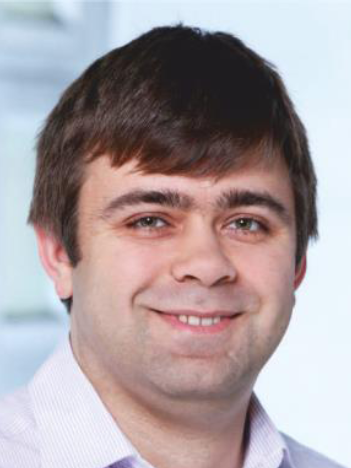 |
The SCS awards Prof. Maksym Kovalenko, ETH Zurich and EMPA Dübendorf for his innovative studies in the chemistry, physics and applications of inorganic nanostructures. The prize if given on the occasion of the SCS Spring Meeting in Zürich on April 22, 2016. |
Maksym Kovalenko has been an assistant professor (tenure-track) of inorganic functional materials at ETH Zurich since July 2011. He is also affiliated with Empa - the Swiss Federal Laboratories for Materials Science and Technology. The research activities of his group are carried out at both institutions (portrait text from http://www.old-lac.ethz.ch/kovalenkolab.html).
Sandmeyer Award 2016
CHF 20,000
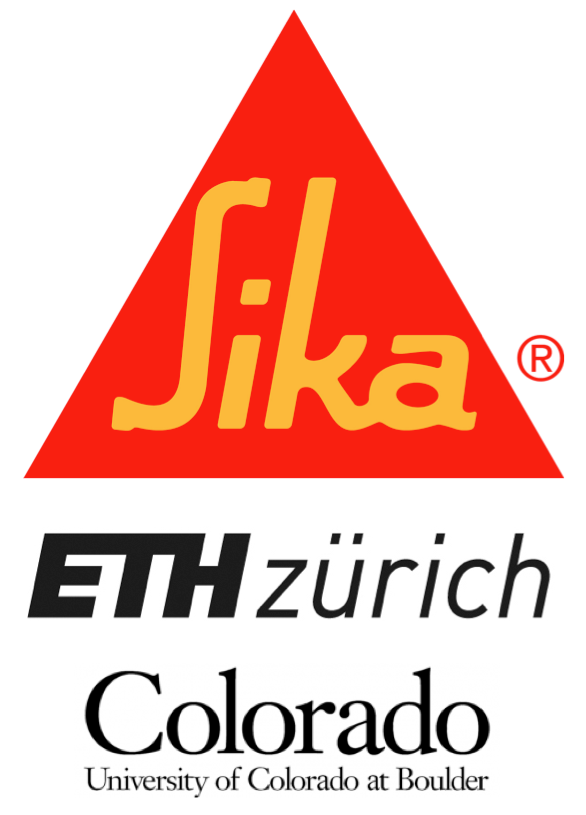 |
The SCS awards the team comprising researchers from Sika Technology AG, ETH Zürich and the University of Colorado Boulder, namely
|
for their experimental and modelling studies of new commercial organic additives for the grinding of inorganic solids.
The award ceremony takes place at the SCS Fall Meeting 2016 and the lecture is given on the occasion of the 13. Freiburger Symposium in Fribourg 2017.
Dr. Max Lüthi Award 2016
CHF 1,000 and medal in bronze
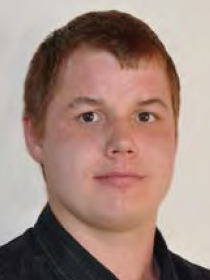 |
The SCS awards Mr. Flavio Gall, ZHAW Wädenswil, for his master his Bachelor Diploma Studies on the design and synthesis of cyclic metalloprotease inhibitors. The ceremony and the lecture takes place at the ILMAC-Forum in Basel on Fri, 23. September 2016 |
Berne, December 8, 2015
David Spichiger, Executive Director
Swiss Chemical Society SCS
/ www.scg.ch/awards
David Spichiger, SCS
08.12.2015
Chemistry Advent Calendar
Prepare for the holidays with this calendar of chemistry highlights covering, for example, candles, champagne, cinnamon, cookies, chocolate, and Santa Claus. There will be another article every day until December 24. Click the gift pack to open the calendar
If you are still looking for presents for the science fan in your life, view our list of science-themed presents recommended by Editors at Wiley and Wiley-VCH.
David Spichiger, SCS
01.12.2015
Page 120 of 298


